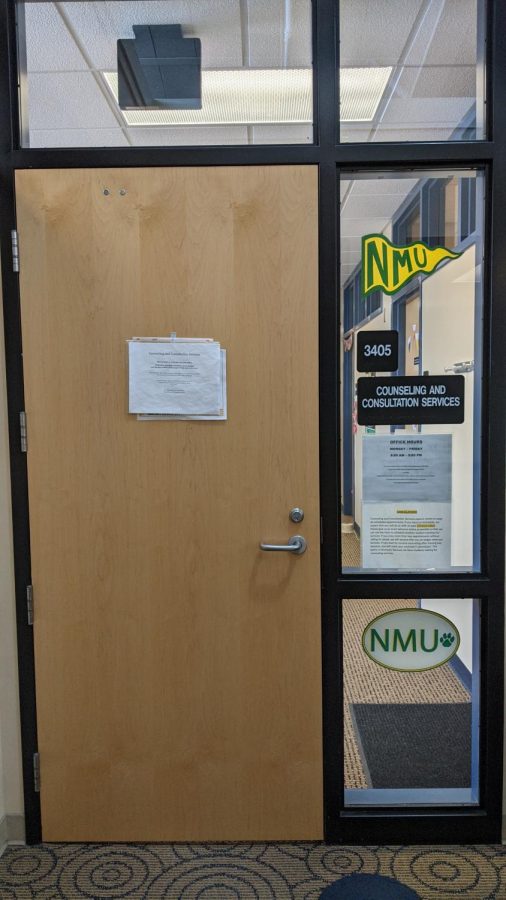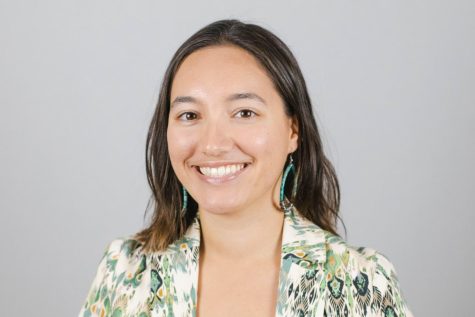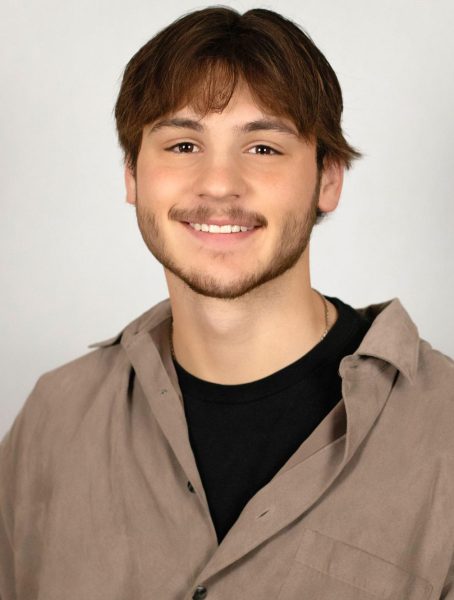Pandemic mental health
How the COVID-19 pandemic is impacted student and global mental health
COVID COUNSELING – The NMU Counseling Center offers therapy to students on a short-term bases and can help with referrals to long term treatment. Their office is open 8 a.m. – 5 p.m. on weekdays and an after hours crisis hotline is available on weekends.
February 9, 2022
For Mia Hickey, third-year public relations major and social media manager for Mind Your Health, the COVID-19 pandemic has created an environment where mental health concerns are becoming a more acceptable topic of conversation, especially on college campuses. The global changes caused by COVID-19 have created wide-spread ripple effects that make mental health challenges a more universal struggle.
“I think [mental health] is important just because it’s something that for years I feel like really has been swept under the rug,” Hickey said. “People feel like they can’t talk about their mental health or it’s something that’s been seen as taboo.”
Mind Your Health, a student organization dedicated to the mental health of students on campus, has been a part of the movement to make conversations about mental health less of a taboo and help everyone find ways to combat the increased mental health challenges brought on by the pandemic.
“I feel like we’re on campus in that transitional period,” Hickey said. “I definitely think [mental health] is less taboo to talk about however, I think it’s still kind of taboo for me to come out and say, ‘oh, yeah, I’m struggling with this problem’ … it’s still hard for individuals to feel okay with speaking their truth, which I’ve definitely struggled with too.”
Jean Kupper, associate professor in the counseling department, licensed social worker and certified mental health therapist for telehealth services, has worked at the NMU Counseling Center for eight years and has noticed a shift in student mental health concerns with the pandemic.
“Predominantly, we were seeing higher percentages of depression in the past, and anxiety was the second [highest] diagnosis,” Kupper said. “Now, really, it is reversed. It’s predominantly anxiety-related concerns that we’re seeing. And that’s not just us; that’s national trends throughout counseling centers in the United States.”
Kupper believes this increase in anxiety-related concerns are directly related to the dramatic social changes demanded from COVID-19 safety precautions.
“Humans are creatures of habit, and we’ve changed those habits from how we engage in class, how we engage with each other, how we are dating, getting together for meals, sporting events, all these other social things,” Kupper said. “We’ve kind of changed the rules and expectations in the last two years, and that huge change for anyone will increase or disrupt the natural order of the individual.”
These social changes have impacted everyone’s lives in some way or another. For Hickey, the initial quarantine at the beginning of the pandemic led to an increase in social anxiety.
“During COVID I didn’t realize how much [the pandemic] took a toll on me until we started going back into being able to do things that we hadn’t done for a year,” Hickey said. “I have kind of developed some social anxiety that I never had before COVID. Sometimes large group events or even going to class some days was really hard for me, especially last semester.”
This increase in social anxiety and seeming awkwardness in social situations is not unique to Hickey. Research professor at the University of Houston, Brené Brown, describes the return to social gatherings after roughly a year of virtual interactions as “the Great Awkward.” Brown talks about how going back to work and meeting people in-person again feels strange and different, especially as the pandemic continues.
While anxiety may be increasing during the pandemic, it is certainly not the only facet of mental health. Many people are experiencing more serious bouts of depression, crisis and stress linked to the pandemic. Deaths of family members and friends from COVID-19 can also have lingering effects on one’s mental health.
For some people, the best way to cope with these mental stressors is to talk to a professional. Therapy is a great resource for those who need to talk through events in their life and seek professional counseling. The NMU Counseling Center offers short term counseling for students at no additional cost and is an available resource weekdays from 8 a.m. to 5 p.m.
However, therapy is not the only option for students looking to improve their mental health.
“Therapy is not for everyone, first of all, but not everything needs therapy,” Kupper said. “Being physically active, eating well, socializing with people that are supportive and caring of you and making sure if you do use alcohol and drugs that you really limit those or not use at all. Those would be my recommendations.”
Hickey has found that physical activity is one solution that works for her to improve her mental health.
“As hard as it can be, for me getting active is really important,” Hickey said. “It is something I’m still trying to get back into, especially this semester, but going to the PEIF or, when it’s not negative 12 [degrees,] going on a walk outside. When you’re in the depths of anxiety or depression, you feel like those things really don’t help but then you do it and it really does help at least a little bit.”
Another option for students looking to improve their mental health is through Therapy Assistance Online. TAO provides self-help modules on situations such as depression, anxiety, grief, breakups, addiction and more. It is accessible to NMU students and alumni at no additional cost through their NMU account.
“In my practice I always set up certain courses for students along with therapy and have them work on that outside of the session,” Kupper said. “It’s just another self help process and it’s a really good program.”
Students who are looking for more in-depth counseling or who require immediate help after hours, can contact the 24 hour Pathways crisis hotline 1 (888) 728-4929 or contact Dial HELP. Dial HELP offers free and confidential crisis counseling via call, text or online chat 24/7.
“As someone who has also struggled with mental health, I just don’t want anyone else to feel like they’re alone, because mental health struggles can be very isolating and make you feel that way,” Hickey said. “I don’t want anyone else to feel like that.”



























